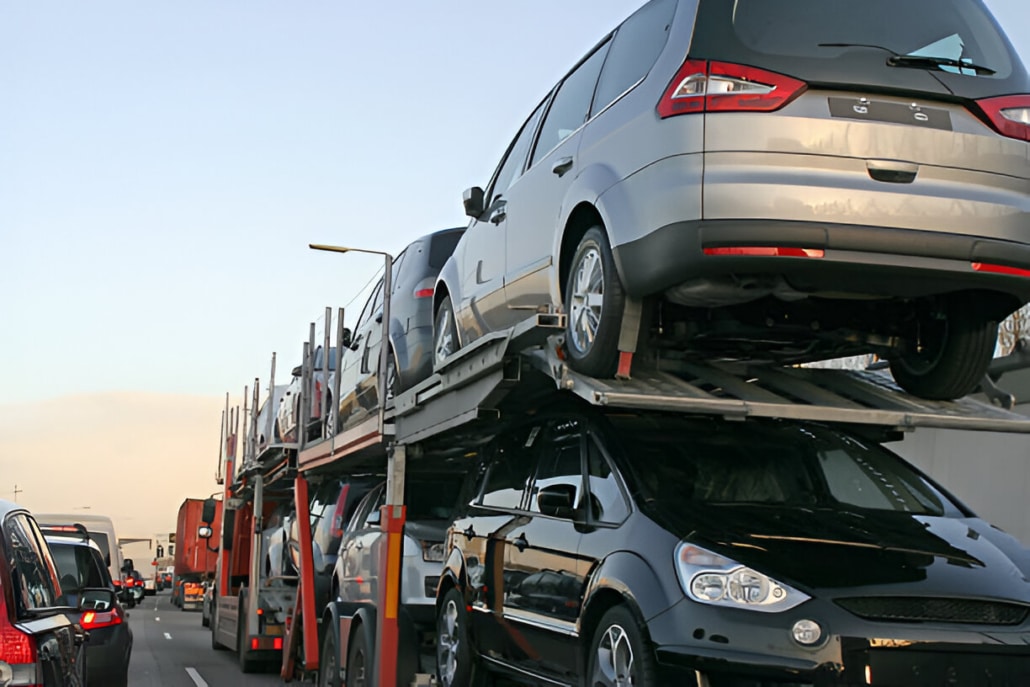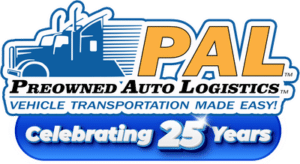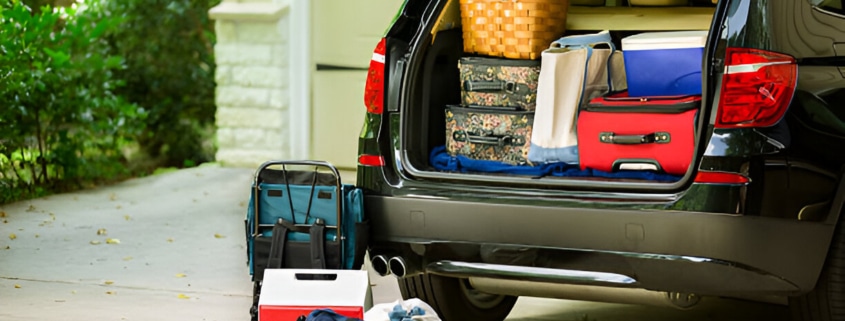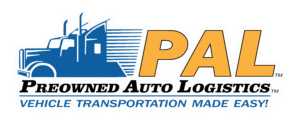Can You Pack Personal Items in Your Car During Shipping?
Have you ever considered using your vehicle to ship boxes and other personal items? This is a common question when you are preparing for auto transport, and rightly so! The thought of shipping a car with personal belongings is not just logical, but also incredibly convenient. After all, if your vehicle is going anyway, why not let your stuff tag along too? It’s a smart and efficient way to manage your personal items during the move, right?
Here is where things can get confusing: there is often no clear answer. While some auto transporters allow personal items to be packed in the vehicle, many others restrict personal items because of federal safety, weight regulations, and insurance concerns. Depending on whether you select enclosed or open transport, they may have different policies as well.
Before packing personal items in a car for shipping, it is crucial to understand what can be shipped, the associated risks, and any additional costs. This knowledge will empower you to make informed decisions and take necessary precautions. Let’s explore auto transport rules for personal items, helping you decide what to ship and what not to.
Preparing Your Vehicle for Shipping
Each year, tens of thousands of vehicle owners use their vehicles to transport personal items to save time and money by using their car as a “cargo capsule”. But the rules and dangers of this are far more complicated than most people know. Let us go over what the FMCSA says, why car shipping company restrictions are in force, why they strictly limit personal items, and how these rules affect you directly.
FMCSA rules: The basics
The FMCSA establishes national safety regulations for auto carriers in the U.S. Here is what you need to know.
- Auto transporters are not household goods carriers: As per FMCSA guidelines, most car shipping companies can ONLY legally carry vehicles. That means they cannot have household goods like clothing, electronics, or furniture along with your car.
- Enforcement is not uniform: While the law may not always be applied uniformly, it still grants carriers the right to refuse transport or require the removal of personal items during inspection. If a vehicle is weighed or checked in transit and found in violation, the carrier can be held responsible, making them cautious about allowing noncompliant cargo. This could lead to delays, additional costs, or even the loss of your personal items.
Why do most auto transporters discourage or limit personal items?
Auto transporters are not being picky; there are real, practical reasons for what can stay in a car during auto transport. Understanding these reasons will help you appreciate the restrictions and make informed decisions about what to pack.
Liability & insurance loopholes
Your car is covered, but your personal belongings are not: Insurance policies executed by auto transporters only cover the vehicle itself, not the personal belongings inside. If you have a gaming system worth $500 or some expensive jewelry, and it gets stolen while the carrier transports your vehicle, you are responsible for that expense.
As Forbes reported, cargo thefts increased 4% in Q2 2025 compared to Q1 and are up 33% compared to last year; total losses have exceeded $1 billion in 2023, with an expected increase of 27%-30% by 2025.
Example: If the box of books shifts while on the rig and cracks your back windshield during transport, your carrier’s insurance will probably deny your claim because of the personal property inside the vehicle.
DOT & FMCSA weight limits
Most auto transport trailers have a strict weight limit. Shipping a car with personal belongings can offset the balance and exceed the weight limits. Some carriers will allow 100lbs of individual items, though most of the time with conditions: items must fit in the truck and not be visible.
Why the limit?
A sedan typically weighs around 3,000lbs. Throw 200lbs of luggage on the backseat, and not only will it affect your car’s fuel efficiency and safety, but it could also cause damage in transit due to shifting weight if not properly strapped down.
Real-world example: A customer attempted to pack 400 pounds of textbooks. The weight shifted during transportation, causing damage to their car and resulting in denied insurance coverage and costly repairs. Another example could be a situation where a car was delayed due to a detailed inspection, causing the owner to miss an important event.
Security risks & theft
- Visible items are attractive to thieves. Cars are loaded/unloaded several times and often sit in public terminals exposed to the elements for hours. Any personal items, especially valuables, become easy pickings.
- Cabin vs. trunk. Almost all carriers will always require that allowed items remain in the trunk and not the rear seat or glove box. Any item that is visible through the window increases the risk of theft and may violate company policy.
Law enforcement & inspection
Law enforcement officials can inspect “shipped” vehicles, especially an “in-motion” vehicle, when traveling across state lines or internationally. If they find prohibited items (e.g., aerosols, guns, lithium batteries) that are illegal in that specific location, both you and possibly the carrier could face severe fines (e.g., as much as $10,000).
For example, a driver mentioned that police routinely conduct inspections of every vehicle, which included searching every trunk, and that no one was allowed to leave until all of the cars on the carrier’s trailer were inspected. Delays are possible with yard delays and detailed inspections.
What items are strictly prohibited?
The FMCSA and most carriers maintain a strict “Never-Ever” list:
- High-risk valuables: High-risk items like jewelry, cash, watches, and collectibles are excluded from carrier insurance and, if lost or damaged, will not be compensated.
- Hazardous materials: Hazardous materials, such as aerosols (spray cans), flammable liquids, car batteries, propane tanks, cleaning chemicals, paints, fireworks, explosives, or combustibles of any kind, can cause a fire or explosion under certain conditions and cannot be moved without hazmat certification.
- Weapons and firearms: Weapons like firearms, ammunition, knives, or anything that can be considered weapons are strictly prohibited from being moved in vehicles being shipped following federal law, and carriers face huge fines if found.
- Illegal substances: Illegal substances, including drugs, unregistered firearms, any form of contraband, or controlled substances, are strictly illegal to transport or import. It applies regardless of locality or jurisdiction.
- Perishables and food: This includes perishable items such as groceries, snacks, canned food, or plants. Perishables can spoil, leak, attract insect infestations, and emit odors, potentially causing damage to the car.
- Electronics and high-value items: This includes high-value items like laptops, tablets, cameras, gaming consoles, or other expensive gadgets. Not covered by car shipping insurance and a high target for theft.
- Essential documents: Documents such as passports, IDs, birth certificates, or vital paperwork, financial, legal, or otherwise, cannot be lost or stolen as they cannot be easily replaced.
- Live animals and plants: Live animals, insects, or any form of living organism. Laws prohibit the transportation of living beings for safety, legal, and ethical concerns.
- Sharp or hazardous objects: This category includes sharp items like tools, box cutters, scissors, and anything that could puncture or damage the inside of your vehicle, such as broken glass or nails.
Note:
Items like perfume, deodorant sprays, or nail polish remover might be considered “harmless,” but because they are flammable, they may still be prohibited. When in doubt about whether something is permitted, the safest course of action is to leave it behind.
What are the actual costs?
The cost of shipping a car with personal items is fixed, but there are different scenarios. Let’s take a look:
- Extra charges: Some companies will allow you to pay extra to ship items beyond the maximum allowable personal items, but that’s rare and likely not shown in their advertising.
- Delay or denied: Exceeding weight limitations or packing prohibited items can result in your vehicle being denied, delayed in transit, and/or charged extra.
- No claims: If items are lost, damaged, or stolen, you will likely not be covered by the auto carrier’s insurance or company policy.
Best practices: how to ship safely
- Ask your carrier first: Always ask the auto transport companies you are using specifically about their rules. Some have no limits, while others allow 100lbs in the trunk or do not permit personal items.
- Stay under limits: Where allowed, stay under 100lbs, use soft items (i.e., clothing), and keep it all below the window line (ideally in trunk).
- Do not hide danger: Do not pack anything from the banned items list, and keep items at serious risk of theft to a minimum.
- Insurance? If you insist on packing items, consider purchasing insurance or choosing a shipping service that includes insurance.
What Is Typically Allowed in the Vehicle
Before preparing your car for shipping, it’s essential to understand what luggage can remain inside due to security and legal considerations. Many people believe you can fill a vehicle with personal items, but this is not the case. Auto transportation companies have specific guidelines and rules based on safety and legality that must be followed when shipping a car with personal belongings.

Small, light, and non-valuable items only
Most companies have guidelines as to how many personal items you can put in your vehicle. You can pack lightweight, non-valuable items. You may pack a suitcase of clothing, blankets, or pillows.
Anything that weighs more than about 100 lbs. contributes to the weight of the car carrier, which in turn can create issues related to fuel economy, safety, and maximum legal weight requirements. We do not recommend packing expensive or fragile items such as electronics, jewelry, identity documents, or cash, which are not insured or protected during transport.
Trunk storage is the best.
The best place to put your allowed items is in the trunk of the car. Not only is the trunk safe and secure, but it is also hidden from view, which reduces the risk of theft or damage. We do not suggest placing items in passenger spaces or on seats, as they could slide around and cause damage within the car, or invite scrutiny from the transport crew.
Weight and content limits are for everyone’s protection
Carriers manage significantly regulated weight limits for legal and safety reasons. Additional luggage in your vehicle of any kind may exceed weight limits, placing your shipment over legal limits and possibly causing delays or fines in the process.
Transport companies will also claim that personal items are not covered under their liability. If your items get lost or damaged, it is your responsibility. It is possible that your cargo could shift and cause scratches, wear, or other damage to your car’s interior or cause harm to other vehicles on the carrier.
Common mistakes
Most people think of their vehicle as simply “extra storage” and overload it with items. Excess items or luggage may cause transport companies to deny the shipment. Leaving valuable items like laptops, GPS units, or sports equipment inside your car increases the likelihood of theft. Avoid packing any food or liquid that may spill or rot inside the vehicle.
Take extra caution when shipping vehicles internationally.
The rules are much stricter when shipping vehicles across international borders. During customs inspection, the officer may inspect the cargo, and if there is anything that he feels should be confiscated (if found), he will seize it, without you getting any compensation for the loss. You should check with your shipping provider for specific regulations when moving internationally.
Quick checklist before you ship your vehicle
- Remove valuables, legal papers, and fragile items from your car.
- Pack only lightweight, non-essential items in your truck, preferably located in the trunk or cargo space.
- Observe your shipping company’s specific rules, as some do not allow any personal property at all.
Risks and Considerations When Packing Personal Items
Rest assured, while it is simple to pack personal belongings in your vehicle for transport or shipping, there are many risks and considerations to address.
Theft, damage, or loss
Ignoring a car shipping company’s restrictions can be fatal when it comes to the risk of loss. The risk of your property inside a shipped vehicle being stolen is much greater than the risk of theft of the vehicle itself. Even with a bill of lading covering the car in transit and the shipment of personal items, the auto transport insurance rarely covers items left inside the shipped vehicle. You might get nothing if your items are lost or damaged. You could lose a significant amount of money, and emotionally it can be distressing. Thieves commonly steal from vehicles on open carriers due to easy access, especially in vehicles that hold valuable or visible items.
Risk of delays or refusal of shipment if overloaded
Consequently, if you add a lot of bulky personal items, you may go over the legal weight limit and cause a carrier to refuse to pick up the vehicle or delay your shipment until you can remove the excess weight.
Overloading the vehicle, together with the carrier’s trailer balance, weight restrictions, and overall safety, can have a profound impact on the carrier and delivery drivers. It can result in late pickups, logistical and cost issues, as well as cancelling your booking, due to your inability to conform to weight or packing conditions.
Legal & safety regulations for carriers
Carriers must adhere to strict federal safety regulations regarding the total or additional weight they can carry. In this regard, carrying extra personal items poses a risk to your vehicle. However, it can also lead to improper load distribution on the carrier’s trailer and potentially cause danger to other cars and their quartered cargo. Carrying certain items that may be prohibited or hazardous to the shipper or customer could result in fines, legal penalties, or immobilization. It may also incur additional costs for the motor carrier.
Practical tips:
- Keep personal items light and small, usually less than 100lbs, and consolidated to the trunk or any designated cargo area.
- Do not place anything in the passenger compartments or on seats due to the risk of damage.
- Remove valuables, fragile items, electronics, and restricted items completely from your vehicle before shipping.
- Ask your transport company any questions or special requests you may have.
How Transport Type Affects Personal Item Rules
Transporting a vehicle and personal items depends mainly on the type of transportation you choose, and influences the auto transport rules on individual items to a great extent. Knowing the distinctions enables you to pack personal items in your vehicle more effectively, avoiding surprises and extra costs when shipping a car.
Open carrier transport
An open carrier exposes your vehicle to the elements and the outside surroundings. Due to this exposure, car shipping companies must adhere to stricter rules for personal belongings. The majority of car shipping company restrictions surrounding personal effects focus on open transport, mainly because items are easily breakable or prone to theft. Most often, carriers restrict or have a limit to what you pack inside, except for a few light and small items secured correctly in the trunk.
Enclosed carrier transport
Enclosed carrier transport keeps your vehicle safe from the elements by loading your vehicle inside a closed trailer, away from the weather and road debris. Enclosed carrier transport policies give you some additional slack on shipping a car with personal items. However, the rules will still be fairly strict to limit liability for anything carried while in transit.
Most carriers will allow you to carry a couple of non-valuable and lightweight items in the car, usually less than 100 lbs, but still advise caution.
Door-to-door shipping
Door-to-door car shipping policies are more accommodating, offering service with delivery and pickup at both ends. With face-to-face communication about personal item policies, the driver can clarify things directly and limit surprises, allowing you to manage the inspection at pickup time.
By personally facilitating the inspection for your car, drivers inform you of any restrictions on personal belongings, allow limited items under explicit agreement, and minimize confusion, making the process slightly more convenient.
Tips for Packing Items Safely (If allowed)
If your auto transport company allows packing personal items inside your car, here are some simple tips to keep everything safe and to avoid any trouble.
Pack only soft, tough, and low-value items.
Pick items that are soft, durable, and low in value. For example, clothes, shoes, or small blankets. These are unbreakable, not valuable to thieves, and can’t damage your car. Avoid bulky and sharp items like glassware and sports equipment, as they can damage your car or other vehicles on the truck.
Do not pack electronics, cash, important documents, or food.
Skip packing electronics such as your phone, laptop computer, tablet, or camera. Electronics are easy to steal, and insurance doesn’t cover them. Do not pack cash, important documents such as passports or driver’s licenses, or credit cards inside the car either. Do not pack food. Plants or drinks can spoil or spill, resulting in stains or smells. For example, never leave lunch boxes or plant pots inside while being shipped.
Pack tightly and safely in the trunk.
Store all your approved items in the trunk or a closed storage area of your car. Stack items tightly so that nothing can move while being transported. For example, if you pack shoes and clothes tightly together, they can’t slide around. Pack soft towels or clothes in any extra space, so items don’t bang around with each other or the walls of your car.
Do not block all controls and airbags.
Don’t allow items to block the driver’s view, the pedals, the steering wheel, or the airbags. For example, don’t leave any boxes/bags on the front seats or near the dashboard. This is important because blocking controls can cause unsafe loading or driving conditions, and the carrier may refuse to ship your vehicle.
Preowned Auto Logistics: Clear Policies, Peace of Mind
Preowned Autos Logistics (PAL) stands for honesty and professionalism in the auto transport world. Clear policies on personal items in vehicles and personal customer service equals peace of mind during the shipment process of your car. Vehicles receive careful and expert attention from pickup to delivery,
Transparent policies on personal items in vehicles
PAL clearly states what can stay in the car during auto transport. We state that only lightweight, non-valuable items can be packed, and mainly in the trunk or cargo space. Any valuable items, including electronics, money, and essential items, need to be removed from the vehicle before transport.
Because PAL clearly states the policies on personal items in vehicles, there is no ambiguity or last-minute issues. You can check weight limits, prohibited items, and packing recommendations on PAL’s website. This information allows customers to prepare their vehicle accordingly and avoid delays and additional fees.
Supportive customer service for clarification
PAL’s customer service does an excellent job clarifying personal item policies and answering questions. Whether customers ask about what can be packed, how to secure belongings, or insurance details, PAL’s support team finds the correct response or guide to answer their questions in a clear, friendly, and courteous manner.
That direct line of customers to PAL’s support and resultant clear responses builds trust and confidence. Customers also receive direct, specific, timely responses to their vehicle shipments, including a driver inspection of their vehicles at the time of pickup to ensure their cars are “good to go”.
The benefits of customer service include:
- Providing clear answers to packing and policy questions.
- Offering individual and personalized advice to the customer
- Clarifying what was covered in the insurance coverage.
- Preparing the shipment and wiring for the inspection.
Safe, professional handling of vehicles
PAL’s priority is to provide safe, careful handling of every vehicle. Each driver/transport operator is well-experienced and professional, and employs industry best practices in loading, securing, and transporting vehicles.
PAL recognizes that any vehicle has both sentimental and financial value. That is why there are strict protocols for loading and regular maintenance of equipment to mitigate the potential for damage to cars. Similarly, our customers receive tracking updates during their vehicle’s transit to alleviate their uncertainty.
Some of the measures we have put in place to protect vehicles include:
- Loading and securing methods compatible with models prescribed by industry best practices.
- Trucks and trailers are routinely maintained to avoid equipment failure and shipment delays.
- External assessment of weather and travel conditions to ensure seamless shipping services.
In a nutshell
PAL has vested interests in customer satisfaction and takes serious measures to improve service delivery through thorough preparation before travel. So, when shipping needs arise, smart people choose PAL as the best option for moving vehicles safely.
Conclusion: Know Before You Ship
It is essential to follow strict guidelines when packing personal items in your vehicle for shipping. Knowing what can and cannot be included can help prevent damage, theft, unnecessary delays, and unforeseen expenses. Knowing the answer to questions like “Can I ship my car with stuff in it?” protects your items while ensuring a smooth shipment.
Preowned Auto Logistics encourages customers to contact us for detailed information on our personal item policy and custom advice. Identifying and discussing your unique circumstances helps determine the accurate cost of shipping a vehicle with personal items, ensuring an easy process.
Contact PAL to get a custom quote and start shipping your vehicle with clarity and confidence.




